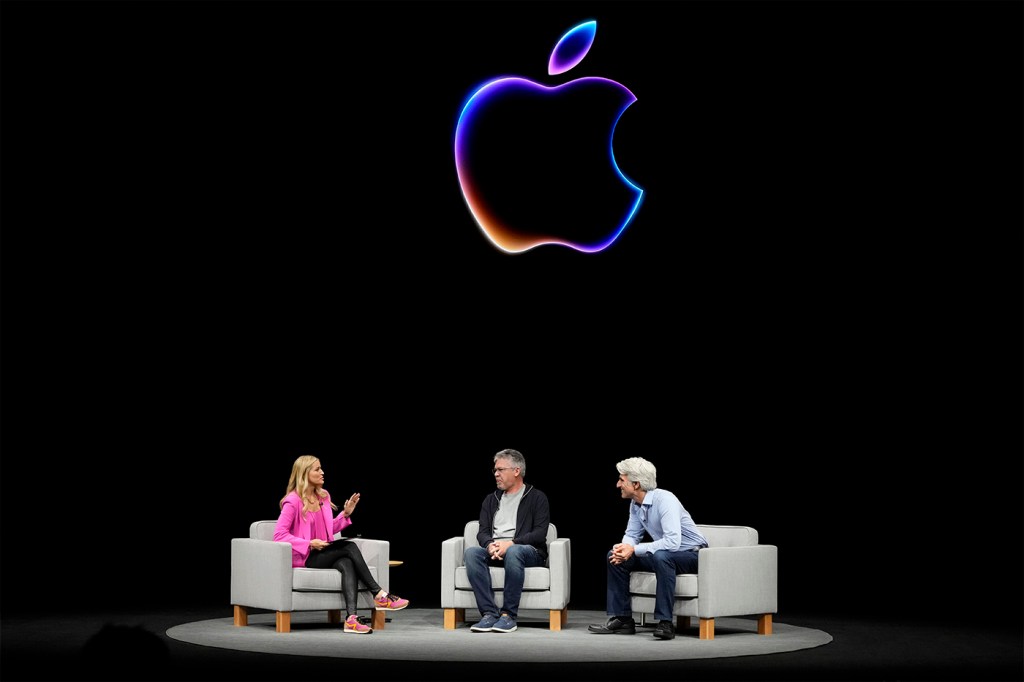Why Apple’s partnership with OpenAI is an admission of weakness — and a genius move

Siri, Apple’s digital assistant, will soon be getting an upgrade.
The Cupertino-based company announced a bevy of new artificial intelligence features at its annual Worldwide Developers Conference this week, including a revamped Siri with support for OpenAI’s ChatGPT.
Usama Fayyad, executive director of Northeastern University’s Institute for Experiential AI, says Apple is playing catch-up and its partnership with OpenAI is an indication that Siri, which was released in 2011, hasn’t been up to snuff for years.
“This is an admission of a bit of weakness and failure on the part of Apple,” he says. “They basically said ‘OK, we’re going to try and detect when Siri is not getting the right answers and we will call ChatGPT, and that’s an admission we haven’t invested and that we’ve fallen behind.’”
Featured Posts
As part of the deal, users will be able to access the free version of ChatGPT and not have their information logged, according to Apple. But ChatGPT’s paying users can also log into their accounts to access the premium version.
The partnership with OpenAI is a smart move, Fayyad says, as it allows Apple access to state-of-the-art AI technology without having to develop it all itself.
But the real genius here, Fayyad says, is that Apple isn’t just tied to OpenAI. Apple has said it is also open to integrating AI services like Google’s Gemini. (The exact terms of Apple’s deal with OpenAI have not been disclosed.)
“They started with ChatGPT, and I think here is the clever move … basically they have said, ‘We could be using somebody else,’ so they have created a marketplace effect where people will bid,” he says. “They create a competition, where the suppliers have to compete.”
Yet, on the privacy front, Fayyad has concerns about what Apple’s deal with OpenAI means for users’ data.
He finds himself in agreement with technology billionaire Elon Musk, who tweeted that he would ban the use of Apple’s products at his companies — if it continues on with its AI plans — over data security concerns.
“I disagree with a lot of things Elon says about AI, including his pronouncements that there will be more intelligent AI than humans in one year, which he is absolutely wrong about,” Fayyad says. “But on this one I agree, because here’s what happens. … Apple, for good reason, wants to rely on ChatGPT because it is the best or, perceived to be the best, and it’s highly subsidized. However, at one point, OpenAI is going to need a business model.”
“I wouldn’t put it past OpenAI to say, ‘Hey, we have all this access to people on their mobile devices using us through Apple, I’m going to leverage it to build the next version better or to come up with this killer app.’ That means indirectly Elon is correct.”
For Apple, AI doesn’t stand for artificial intelligence. The Silicon Valley giant said its host of features are a part of a new framework it is calling Apple Intelligence, and the ChatGPT integration is just one part of its AI plans.

At the Worldwide Developer Conference, Apple demoed its AI systems at work on the Mac, iPhone and iPad. From creating custom emojis and editing images to assisting in writing emails and finding files, the technology is designed to be “grounded in your personal information and context,” Craig Federighi, Apple’s senior vice president of software engineering, said during the event.
The systems are also designed to analyze apps, including Mail, iMessage and Maps, to provide users with notification summaries and information on action items like future flights and upcoming appointments.
While the company is touting that it has developed an AI system that is deeply integrated into its line of products, it highlighted it is placing a big focus on privacy and security.
As part of this framework, Apple says it has developed small on-device machine learning models that allow people to complete tasks without having to access the internet, keeping their data secure.
During times in which users do need access to large models on the cloud, Apple has developed what it calls its new “Privacy Cloud Compute” infrastructure that hooks into its own private servers. The company says data processed on the servers is not saved and only exists to fulfill specific requests.
But even on Apple’s broader intelligence platform, with its on-device models and outside infrastructure, Fayyad says he doesn’t believe it is there yet.
“They don’t have any magical stuff running on this big private cloud,” he says. “They don’t have any great models. I don’t see any evidence of that, and the fact that they use ChatGPT and have this partnership is evidence that they know they’re behind.”
Beta users will be able to start using Apple Intelligence features starting in the fall, and access to ChatGPT in Siri will come later this year, according to the company.
Apple is just the latest consumer-facing technology company touting artificial intelligence as the Next Big Thing.
Last month, Microsoft announced new AI-powered PCs and Google added AI Overviews to Search. In April, Meta added its AI chatbot in the search bar on Instagram and Facebook.











